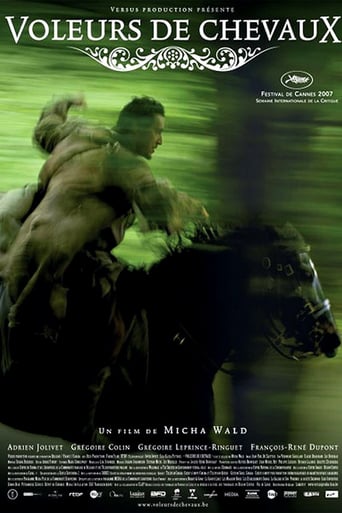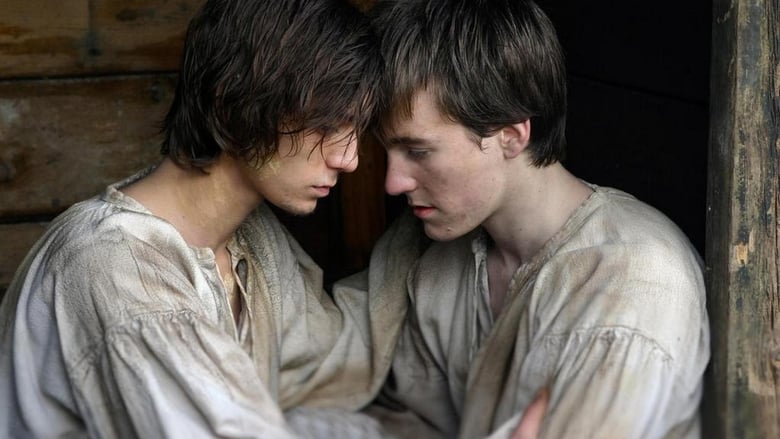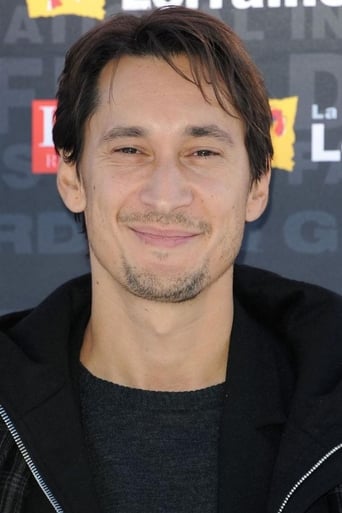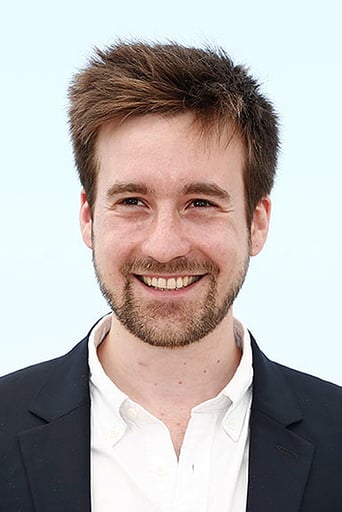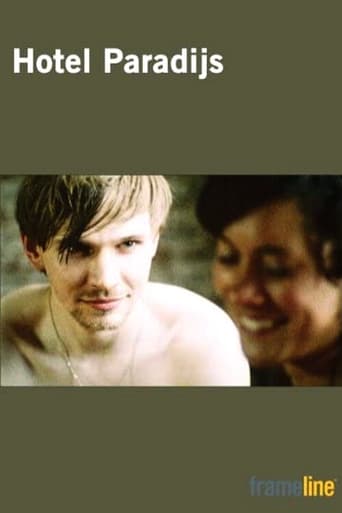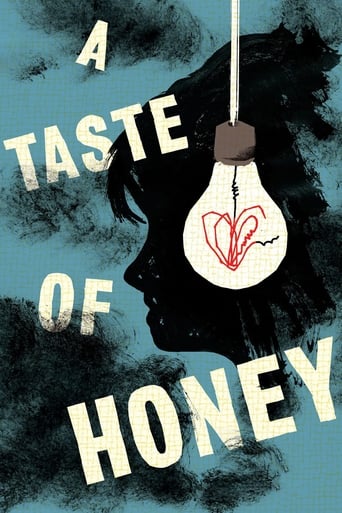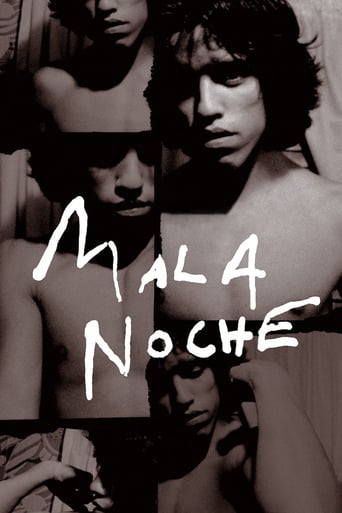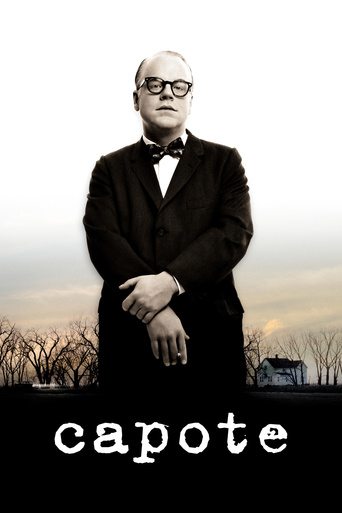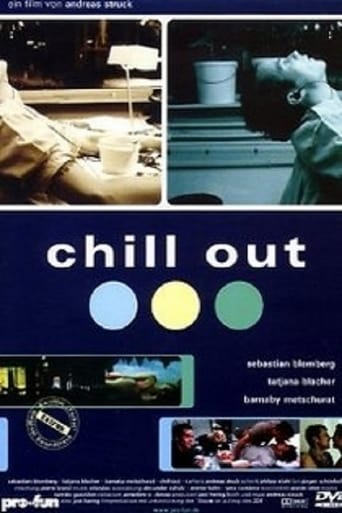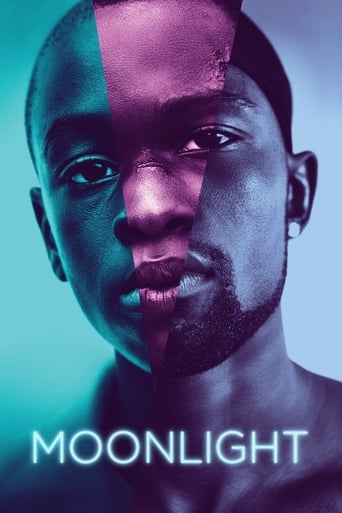In the Arms of My Enemy (2007)
Jakub and Vladimir, two brothers in their late teens, join in the Cossack army to flee poverty. Elias and Roman, two other brothers, on their own as well, steal horses to survive... When fate brings them together, the encounter proves lethal. Vladimir gets killed. Jakub now burning with anger, is obsessed with revenge. A wild track begins, no one will be left unharmed...
Watch Trailer
Cast


Similar titles
Reviews
I think this is a new genre that they're all sort of working their way through it and haven't got all the kinks worked out yet but it's a genre that works for me.
Save your money for something good and enjoyable
In truth, there is barely enough story here to make a film.
At first rather annoying in its heavy emphasis on reenactments, this movie ultimately proves fascinating, simply because the complicated, highly dramatic tale it tells still almost defies belief.
Truly this is such a great film. Right from the start you will be gripped by this film and you will sit watching it with total attention until its completion. The drama is so well constructed, but there is so much more to the film than that.The four main characters are two sets of brothers surviving on the edge. Life at the beginning of the 19th century is very tough and so these brothers are very closely bonded. You might say there is a homo-erotic element to this film, however although I am a gay many myself I don't think these closely bonded males are in any way being depicted as gay. I think rather, they cling to each other because that is all the security they have.I watched this film at home and a friend had suggested it to me. I didn't know anything about it before I started watching it. I think that it is probably set in Ukraine, but I am not sure. A quick bit of googling has not been very fruitful, from that I read simply that it is set in Eastern Europe.The dialogue is sparse and in French. I watched it with English subtitles. However character development is excellent and the acting is first class as well.I have not seen any films by Micha Wald before and I will most definitely be watching his other films in due course.
Brutal to the point of pointless. The over-repeated ring of bones crunching, snapping and breaking is what you shall take away with you. A wasted opportunity, considering the time, place and people in history are much neglected by western cinema.The violence, which hogs everything, even itself becomes dramatically repetitive. The whole, inevitable, boring thing underscored by a vaguely religious male choral electronic musical voice which becomes camper and camper as the violence becomes more absurd.The landscape is all but ignored. The people largely reduced and the protagonists used to synthesize the maker's own indulgent idea of tragedy and masculine beauty. Sadly,the taught notion that thoughtless brutality is somehow elevating when contrasted with the prettiness of youth (or is it meant to be the other way around?) just felt immature rather than informed or emotionally meaningful.Such a waste. Just to add in it's favour, that the leads did bring good performances.
Belgian first-time director Micha Wald says he wanted to say something about brothers. World War II was his first choice but people told him production costs would be too high and that stuff's been done to death anyway. So Wald switched to an almost abstract world of wild boys and macho men, wooded groves and lakes, open shirts, sabers, fur caps, horses, to the region Wald's forebears come from and the time of the Cossacks. This film set "somewhere in the East" in 1857 can't be taken realistically on any level and isn't meant to be. How else would a bunch of Slavs all speak perfect French? It's hard to know how to take it, and for this reason responses have hit opposite extremes. Some French reviewers were enthusiastic, others dismissive. One Allociné viewer says "A pure marvel, not to be missed," another, 'Avoid at all costs." Within what everybody acknowledges was a very limited budget, 'Voleurs de chevaux' has daring and sweep. Wald pursues his story with the same intensity as his characters pursue their fates. But it's got a problem, genre-wise, because it's a boy's adventure, full of fear and innocence and exciting teenage daring-do, but it's too violent for kids to watch. And while the early parts are intense and fast-paced, it loses momentum and goes flat later.The story only makes sense as a fairy tale or a myth. Two pairs of brothers come into symbolic, parallel conflict. One pair steals the other's horses and the older of the thieves kills the weaker, younger brother of the pair they victimize by reaching down from his horse and snapping his neck. The bereaved survivor hunts the horse-thief brothers down and kills the older one, taking the younger under his wing as they ride off into the sunset. Along the way there are passages of bracing physicality and rawness but also of extreme violence--not just the harrowing encounters between the opposing brothers but the brutality of a Cossack training camp, and after training, wartime atrocity when the Cossacks wipe out a village, leading the brother recruits to desert.Adrien Jolivet, who plays Jakub, the stronger of the two brothers who join the Cassacks (and later get their horses stolen), has said that the actor who played the Cossack commander he fights with fists and saber (this is Michel Martin, I'm guessing) was an ex-fighter and they used real weapons, and it was all he could to do avoid getting killed. Jakub's younger brother Vladi (Grégoire Leprince-Ringuet) gets raped and beat up all the time. It's not a great role for Leprince-Ringuet, who's so appealing as the gay boy in Honoré's 'Chansons d'amour'--he looks bigger than the wiry Jolivet, and all he gets to do is cringe and weep. To compensate for being a little too slight, though, Jolivet (excellent in his father Pierre's 'Zim and Co.') has an admirable feverish intensity that's convincing for "Le traque," the hunting down, after Roman (Grégoire Colin) and his damaged, horse-whisperer younger brother Elias (François-René Dupont) have lured Vladi's and Jakub's horses away while the other brothers are gamboling in a lake after abandoning the Cossack life. (How that happened wasn't quite clear to me, or how they got to keep the horses.) Roman's relationship to Elias' is similar to Jakub-Vladi's, except that Elias is a drunk and young seducer and Roman is really harsh and violent with him; it's his mean trick when they were little that damaged Elias' leg somehow.Up to the theft of the horses things go pretty well. Then the film loses momentum and gets wobbly, even though the battle between Roman and Jakub that leads to Roman's slow demise is brutal and violent in the extreme. The last effort at raw, unheroic realism is exhausting and repellent, and feels more than anything just like sloppy editing. The two young men give each other deathly wounds, then struggle away on foot and horse only to exchange further blows and collapse in the horse thieves' underground hideaway. It leaves you feeling beaten down and hopeless. The closing shot of Jakub riding across the horizon with Elias riding a horse behind him almost saves things. It's a resolution in keeping with the film's mostly non-verbal style and fairy-tale overtones. There's a strange art-house purity about this effort, but I have a sick feeling that if Wald gets a lot more money he'll just make something overblown and pointless like Laurent Boutonnat's 'Jacquou le croquant.'Three of the young actors are already well known, especially Colin, an actor almost since birth, used repeatedly by Clair Denis and notable for his relaxed physicality and his ability to slide easily into very diverse roles. Leprince-Ringuet and Jolivet are both very promising, charismatic young actors, just not altogether suitably cast as brothers. François-René Dupont was a 17-year-old unknown, chosen for his presence, good looks, and in particular for the fact that he'd ridden horses from the age of six. Wald shows a certain panache, but his scenario is spotty and his editing questionable. With its physical intensity and occasional sweeping landscapes this is a film it would have been better to see in a theater than on a computer via DVD, but it never got to American theaters and may not have spent very long in French ones. It was included in the "Semaine de la critique" at Cannes in 2007 and its special nature will win it a following. We'll see where the director goes from here.
Micha Wald has created a strong masculine drama as writer and director of 'VOLEURS DE CHEVAUX' (IN THE ARMS OF MY ENEMY), a film with a grand sweeping view of nineteenth century life in the region of Russia and has accomplished this with a very small budget, a cast a both unknown and new actors, and a production crew sensitive to place and atmosphere. For some reason the marketing of this film has been directed to a particular audience instead of emphasizing the broad spectrum of those who love epic dramas. It deserves very wide attention, as it is an excellent meditation on the rigors of filial love among the destitute of the period. Part I: Him: Jakub (Adrien Jolivet) is the diminutive but strong older brother of Vladimir (Grégoire Leprince-Ringuet), a gentle and handsome young lad who depends on Jakub's 'parenting'. The two destitute brothers fend for themselves, dressed in rags, begging for food and work, until they encounter a group of soldiers who are enlisting young men to be Cossacks. Jakub sees the opportunity for food and shelter and 'belonging' and encourages Vladimir to join him in enlisting. The rigors of 'boot camp' drive Jakub to dangerous extremes and result in his being punished and imprisoned for varying periods of time while he still masters fighting techniques and equestrian skills: the more defenseless Vladimir falls victim to abuses at the hands of his fellow recruits. When Jakub discovers that Vladimir has been raped, he resorts to serious fighting and the two brothers are placed in a solitary confinement box. When their training period is over, the boys witness the brutality of the Cossacks as they slaughter innocent families, and this is the breaking point that drives them to desertion. They escape the Cossacks on stolen horses, but while bathing in a river, their horses are stolen. Part II: Them: The horse thieves are two other impoverished brothers with a strong parallel - Roman (Grégoire Colin) is the stronger, pugilistic older brother who takes care of his younger brother Elias (François-René Dupont), a gentle lad crippled in youth by a goring from a ram but who maintains an ability to communicate with animals. They live humbly in a forest shack and an underground hideaway, and when they make their rare excursions into the village tavern, Roman jealously guards the more fragile Elias, threatening even the girl Virina (Mylène St-Sauveur) with whom Elias is infatuated. Using a combination of their skills, Roman and Elias steal the horses of Jakub and Vladimir, and the trail of vengeance begins. Part III: Us: Both sets of brothers are needy and their destinies collide due to the theft of horses. Tragedies mount, both sets of brothers intensify their filial bond of compassion, but the older brothers fight to the death of one and in the end one of the brothers provides succor to the survivor of the other set of brothers and the ending leaves the audience to guess the future altered by violence and need. Micha Wald draws powerful performances from his young cast of beautiful actors and with a minimum of dialogue ( in French with English subtitles) he creates wholly credible characters about whom we care very much. The cinematography by Jean-Paul de Zaetijd is superb and the haunting musical score by Jóhann Jóhannsson, Jeff Mercelis and Stephan Micus is rich in capturing the harmonies of the music of the period and the location. In all, this is a visually stunning film and a story that is subtle and touching and impressively sophisticated in the manner in which it is told. Highly recommended. Grady Harp

